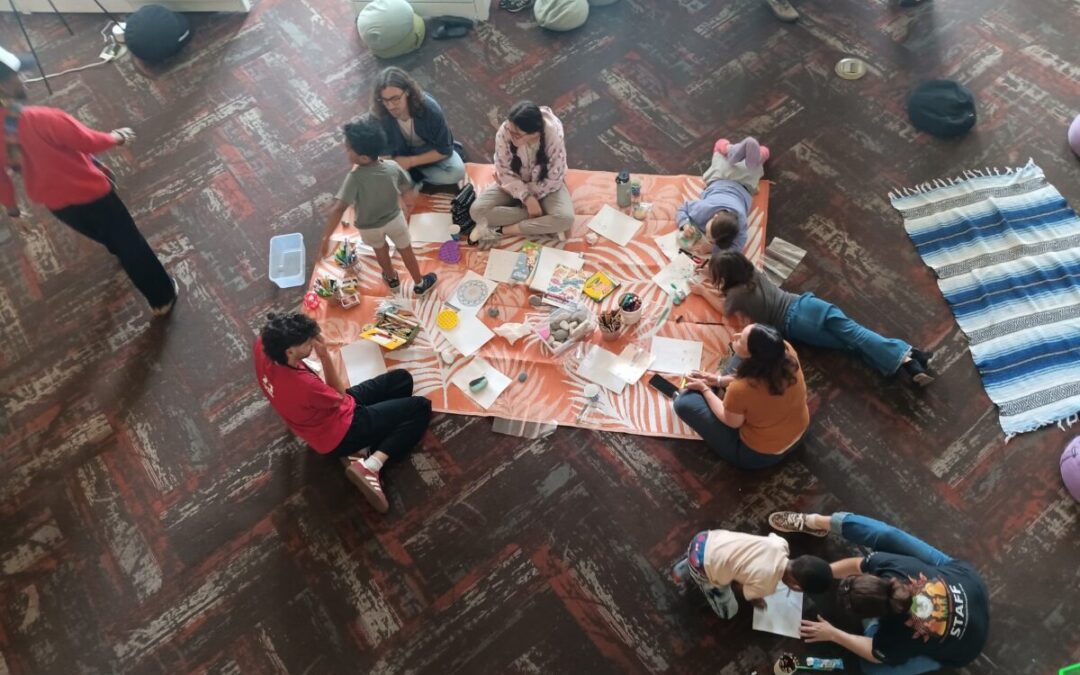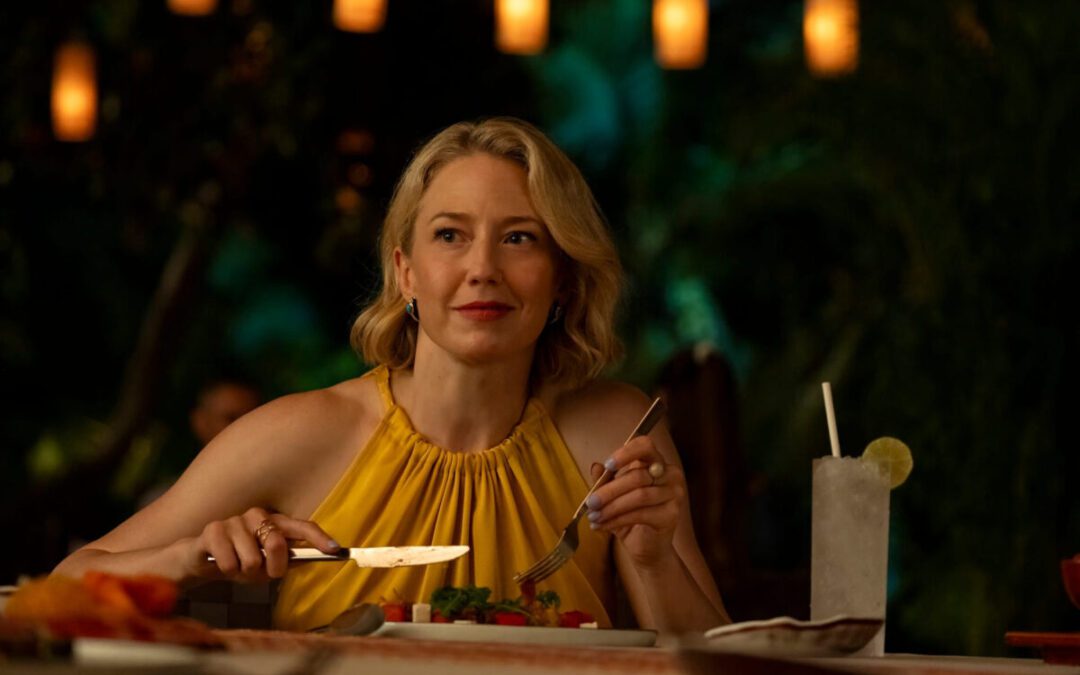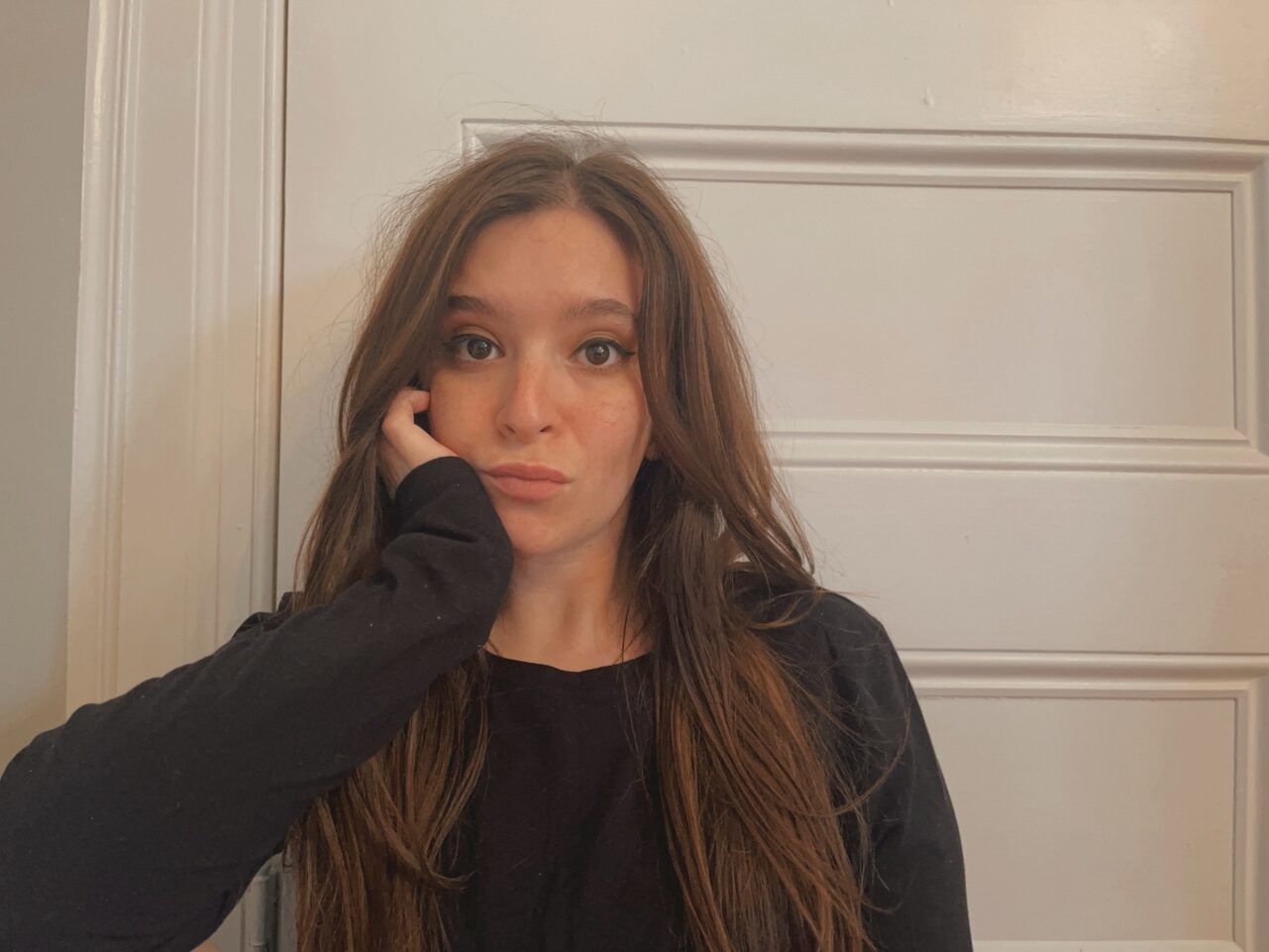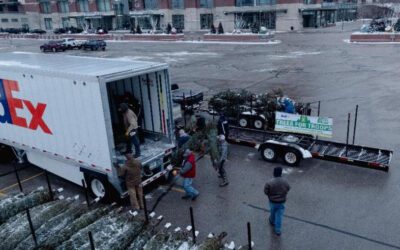
Amanda Edwards/Stringer/Getty Images Entertainment/Getty Images
Calahan Skogman is perhaps best known for his leading role in Netflix’s “Shadow and Bone,” where he played the beloved character Matthias Helvar. Now, the Seymour, Wisconsin native is getting ready to add another impressive credit to his resume: published author.
Skogman’s debut novel, “Blue Graffiti,” is a love letter to his home state. Publishing on Aug. 13 from Unnamed Press, the story follows painter and construction worker Cash as he navigates the internal (and exterior) landscape of Johnston, Wisconsin.
“Blue Graffiti” is a poetic, sweeping portrait of what it means to remain loyal to your hometown and its people. As Skogman told me during our conversation, he wanted to capture the essence of small-town life and how it can become its own living, breathing entity. He accomplishes that in spades by drawing from his innate love for the place where he grew up, and the people who helped him achieve his wildest dreams.
When he set out to write his debut novel, he intended for it to be a gift to his parents and younger brother—the people who know him and his history with Wisconsin the best. In choosing to submit it for publication, Skogman has taken that intention one step further—a decision that’s best summarized by his own words: “I want the book to be something Wisconsin can have.”
And it is.
Sam Cohen / UpNorthNews: Your forthcoming novel, “Blue Graffiti,” is set in Johnston, Wisconsin. Before you started writing, did you know that you wanted the book’s setting to be your home state, or did that decision emerge after you formed your original idea for the premise?
Calahan Skogman: It wasn’t something I thought about a great deal beforehand. It came naturally that, of course, it was in Wisconsin. So, I guess I would say when I first sat down to start writing the book, I had a very initial idea of the story or mainly the lead [Cash] and where he was going to start the story. And that was in a bar, and that bar was just kind of inherently in Wisconsin, I think. That’s the place I know best. That’s the place where a lot of the themes and nostalgia and the ideas of the novel were born out of. So I think, yeah, it was always going to be in Wisconsin.
SC: Did you model the bar, Jimmy’s Place, after a specific bar in Wisconsin you’ve been to, or did you use details of certain places to color that?
CS: With many things in the book, it’s not replicas. Even the people aren’t replicas. I pulled from so many different places, so many different people that I knew from spending the first 18 years of my life in Wisconsin—and oftentimes in rural Wisconsin—and in bars in the middle of nowhere with very few people, but with so much soul and history in them. With Jimmy’s Place in particular, that became the emblem of so many bars I had frequented on road trips while traveling.
I played basketball growing up, and we’d have tournaments traveling around different cities throughout the state, and afterward, the kids and parents would go out, and we’d find ourselves in some bowling alley/bar/all these features, and to me, growing up, they were iconic. Jimmy’s Place took on the spirit of all of those American, middle of nowhere bars combined. It was always a romantic, nostalgic feeling I had growing up when I would step foot in those places. That’s something I wanted to imbue Jimmy’s Place with and detail it through Cash’s lens.
SC: I grew up in a small town in Massachusetts, and so much of what you’re writing about has felt nostalgic, even for me, of what it’s like to grow up in a small town. Everyone knows everyone and you’ve really beautifully translated that here.
CS: That’s one of the best compliments I could receive about the book. For me, I’m from a very particular part of the world and a particular part of America, but something that I’ve found to be such an essential part of America as well. And it can get glossed over in the bigger picture scene sometimes, but especially after growing up in a place like that, I’ve been living in Los Angeles on and off since 2016, and obviously I don’t think there’s a place that could be more different from Johnston, Wisconsin than Los Angeles.
But it’s given me a great deal of perspective and just the value of growing up in a place [like] where I grew up, and the beauty and the hidden details and the life that can come out of small town America. It’s something I really hold dear to myself and my journey. I think anyone who’s from small town America, wherever that is, my hope is that particular slice of truth could resonate.
SC: Speaking of small town life in Wisconsin, what would you say you’re most proud of in terms of that, and what would you most like to see changed for the better in those spaces?
CS: That’s a good question. The things I carried with me and continue to carry with me today from growing up [in Seymour] is that all we had there was each other. There wasn’t a lot of fanfare. There wasn’t a movie theater. In fact, there was one traffic light in the entire town and they’ve recently even got rid of that. There’s open land in farm fields and one bar, and I think what happened growing up in a place like that is you do rely upon one another in the relationships you form. You have an incredible depth and loyalty and familiarity, and I didn’t gain a true perspective on that until I left. Looking back on it now, it’s so unbelievable to me.
The town I grew up in currently has like 3,500 people in it. It’s a very, very close-knit community where everyone knows everyone and you don’t have another choice. These are your people. I spent so much of my life observing and noticing what made everybody different, and beautiful, and the nuances of what would appear to be a not-so-complicated life are actually incredibly complicated and incredibly deep. It was a place where I could foster a lot of the things I hold dear to me now as far as ideals of love and loyalty and faith, and honor and hard work and honesty, and showing up for one another and family, and the things that keep me rooted to the ground when life wants to smash me up and throw me in different directions.
I’m profoundly thankful I grew up there because it’s a very nice center. My life has changed so much since those years that it’s been something I can always return to and I can always resonate with. I resonate with that in literature as well, and the stories that I loved growing up, and I understand these people. I have a great affinity for it, even now.
SC: Building off of that sentiment, through the writing process, what was most important to you in terms of capturing the spirit of what it’s like to live in Wisconsin?
CS: So many things, but the details [and] I think the pace of life. I knew when I was writing “Blue Graffiti,” that maybe it’s not going to be for everyone style wise based on the style and the nature in which I wrote it. But it was of the utmost importance to write it that way because I’m not going to write a book about Johnston, Wisconsin and make it some bombastic, crazy plot that’s action packed—that’s not the nature of the life there.
What it’s going to be is actually a very intimate, detailed reflection and introspective of wandering and wondering. And where the things that drive the story are the details of the town, or the love for his friends, and the richness of characters in “Blue Graffiti.”You might meet a character for a paragraph and you might never see them again, but I wanted to get the tapestry of Cash’s day-to-day—almost like brutally mundane—is so essential to that kind of place.
What I wanted to capture is that the essence and excitement of his life truly are in his friendships, and the little details he notices, and the things he’s learned to cherish over his life, and the collective of all of the things that make him who he is as an exploration of his entire life. And it jumps back and forth, but you start to, over the course of the novel, understand the inner workings and magnetism of what he is and how someone like Cash can be approaching 30 and still be in a town like that when he has an obvious longing to be elsewhere. I wanted to capture that and the real heartbeat of a town like that, that you can grow so fond and so in love with if that’s where you’re from.
SC: You mentioned living in Los Angeles on and off over the last few years. Did you write a majority of this book back home in Wisconsin, or did you write it on the road? And if you did write it in Wisconsin, do you think that influenced or enhanced your emotions around the writing experience?
CS: I wrote the first third of it in Wisconsin, and I wrote the first draft of it in four weeks, and that was born from a crazy idealism, maybe. [Laughs]. But I had such an affinity for it. I was going through such passionate, deep dives into a bunch of different Beat Generation writers, who are some of my literary heroes. And one of the stories I couldn’t get over was hearing about how [Jack] Kerouac had written “On The Road” in three weeks. Of course, he was absolutely gunning off ketamine and all the amphetamines and all these substances. But that was a style of writing I was always drawn to, even before I discovered Kerouac.
I’ve always loved the stream of consciousness [style] and the freedom of writing and following that impulse and writing as fast as I could. Even when I’m typing on a computer and trying to write my other novels, I almost can’t type fast enough. It’s almost gotten to the point where I love writing in pen—and I’ll write my poetry in pen—but if I were to ever try and write a book with pen, it would be utterly impossible because it’s just too slow.
I was figuring out how my literary heroes wrote their books with such speed and veracity, and that was something that appealed to me. And so I was like, Okay, well, I might not do the amphetamines, but I’ll drink a lot of coffee and have my own artistic sleepless nights and just kind of go for it [both laugh].
I did write the whole thing in four weeks, but most of the book I ended up writing in Vancouver because I went to film the show that I was filming at the time, and I had to do some reshoots, and it was during COVID as well. I had to fly to Vancouver and stay in an apartment there for two weeks and couldn’t leave the premises at all, and the timing of it was wild because what it allowed me to do was be in the apartment and write “Blue Graffiti.” So, I ended up writing the majority of the book actually in a Vancouver apartment that I couldn’t leave.
View this post on Instagram
SC: You touched on this a little bit, but I would love to hear more about your childhood and growing up in Seymour. Were you a writer or a reader from an early age?
CS: I was. And I think a great deal of that can be attributed to my parents. We grew up in a household [where] that was promoted and encouraged with me and my little brother. We were big readers, and a lot of the things that are intrinsic about Cash in those places in the world were intrinsic to us, too. We didn’t grow up in a world of screens and things that were scrambling for our attention. We got to create our own dream worlds for ourselves and be our own entertainment and find our own adventures.
I also grew up writing constantly, and that was way before I knew what I was doing. It was meaningful to me. I always loved writing. I would find ways to write constantly, but there’s hilarious stories of when I used to get into trouble or I’d be sent to my room—I’d get in an argument with my parents when I was very young—and I would go to my room and I would write a letter to my parents. I would be like, “Okay, that didn’t go down how I wanted it to, and let me explain why.” [Both laugh]. I would try to do a much better job of detailing my emotions and my apologies in my letters. I remember when I was younger as well, I would write poems and they were so obscure, and intentionally so sometimes.
I think I would write as obscure as I possibly could because I was like, all these poets are just writing poems that are confusing and really, essentially, have no heart to them, and they mean nothing. They’re just fancy, ridiculous language. I went through a phase where I was just like, “I could do that easily.” So, I would write all these intentionally obscure poems, and I remember giving them to my mother and she would read them and be like, “Hon, this is great, but what does this mean? Do you even know what this means?” And I would just be like, “Mom, I’m not going to tell you what my poetry means. That’s for you to say.”
SC: That’s the great mystery of poetry. You can ascribe any meaning to it.
CS: Exactly. I think so much of consuming art, or what a work ends up meaning to other people or the world, is so often defined by someone’s perspective of it and someone else’s lens. As an artist or as a writer, after you release your work into the world, that’s it. They’re going to tell you what they think of it, and oftentimes they’re going to tell you what it means even if it meant something completely different to you, and that’s just the nature of the beast.
SC: To jump off of that, you’re gearing up for your upcoming book tour, which is going to include three events in Wisconsin. What are you most looking forward to about the experience of being able to celebrate this release with the people in your home state, and what are you most nervous about in terms of hearing the reaction from people in Wisconsin to this story?
CS: When I was back home last, I had discussions with my parents about the possibility of having book tour events in Wisconsin, or in Seymour, since it’s so closely related to the work. My parents don’t live in Seymour anymore, but they live nearby. And the nature of that makes me, in a sense, inherently uncomfortable just from the attention standpoint. That’s something I can struggle with in all facets of notoriety or fame. Even with the shows I’ve been on, or social media, there’s always that little voice in your head that’s like, “Do people really want to hear me come back and speak about this book?” It’s always that feeling of surprise.
And then I talked to my old football coach, who’s now the principal at the high school in Seymour, Matt Molle, who will be moderating the event that we’re going to hold on the release night there at my old high school. I asked him that question and he was like, “Man, of course, this is what it’s all about. These are the kinds of things we want to be celebrating around here.” And I think because it was so long ago for me, my time in Seymour, Wisconsin, it’s been a lot of years of reflection. If someone reads the book, it’s [Johnston] not the town I grew up in, but in so many ways it’s the little towns that we all grew up in. So, it’s definitely going to resonate and at least go in for the perspective I had growing up in a place like that, and the love I have for the people there.
If people read it and are at the book tour events in Wisconsin, it’s not really nervousness, but it is a vulnerable thing. It’s such an intimate book. It’s such a vulnerable lens through which I’m writing, especially if you know me and if you know where I’m from, it gets right to it. It’s not shying away from that. In that sense, I’m opening myself up to talking about it and hearing people’s opinion about it, instead of just writing it. It is an exciting thing as well though.
Look, I love Wisconsin so much, and I think it’s clear to anyone who reads “Blue Graffiti” that I have a profound love for small town America and the place I’m from. My hope would be that when I return to the state to talk about “Blue Graffiti,” that the response to the book would be something of pride and something of love and something of an affinity for it, because it’s all of us.
I didn’t read a lot of books that were about it [Wisconsin] in the course of my life. I haven’t found a ton of inspiring literature that goes to the heart of that. My whole thing was that, and Cash talks about it in the book as well toward the end of the first part where he’s immortalizing this place and writing people’s names in the sky and just detailing the beautiful lives of the people that might not detail our history books. And his desire to proclaim that we were here, and we are here, and it matters, and these lives are just as important as the flashier ones you see on the big screens. Essentially, it’s a love letter to America. I hope the people who read it from those places can have a sense of seeing themselves in it, and a sense of pride and belonging with the novel itself. And I really want to do it justice. So, that’s the only pressure along with it.
View this post on Instagram
SC: As one final question: What are some of your favorite Wisconsin restaurants or institutions?
CS: That’s a good question. I’ve spent so much of my time driving around that state, and I think the thing that always amazes me and always makes me feel incredibly happy and nostalgic is these small towns just off of the highways that you would never, ever know are there that are existing as their own kind of ecosystems. Especially when I go back home now or I’m traveling around the state, I love those places. And it’s the real fabric of what makes up the state and all the gorgeous farmland. There’s a lot of that in the book, of Cash driving and looking at the wide open fields or the change in fall leaves or the starry night skies, which are always so clear there. I think all of those are essential to the Wisconsin experience for me.
Growing up near Green Bay, as far as the institutions are concerned, I would have to go with the Packers and Lambeau, and the love and community and passion that people from Wisconsin carry for that franchise. It’s such a great example of what makes Wisconsin great, because if you go to a Packers game or if you talk to Packers fans, it’s the sense of togetherness for a fan base, which cherishes it so dearly because Green Bay is by far the smallest city that has a major sports franchise in America, and they’re the only organization that’s actually owned by the community itself.
It’s such a great metaphor and example of what it is to be a part of something. To feel like when I go home, it’s that love, that loyalty and care and passion that my friends and I have for one another, and my family and I have for one another, that is so strong, and it’s so hard to quantify if you’re not from there. It’s one of the things I wanted to put in the book. I wanted everyone to get a sense of Cash and his love for the people he’s in connection with, his friends and his family, and how much it means to him. That’s the kind of community and friendships that are born out of a state like Wisconsin, and certainly in the small towns in the state.
WI BOOK TOUR DATES
8/12 Seymour High, Seymour WI with MATT MOLLE
8/13 Launch party at District 1 Brewing Company, Stevens Point WI with Bound to Happen Books with PATRICK ROTHFUSS
8/14 Barnes & Noble, Green Bay WI with AMY E. REICHERT
For a full list of Calahan’s U.S. tour dates, click here.
“Blue Graffiti” is published on August 13 through Unnamed Press

Indigenous practices help heal trauma passed down through generations
It’s not uncommon for Indigenous people to feel distrustful or on guard when around White people, explains Lea Denny. That distrust is passed from...

How did Wisconsin do at the Golden Globes? Mark Ruffalo, Amy Madigan and more
Wisconsin was well-repped at the 83rd annual Golden Globes. There were at least five nominees with connections to the state. But, unfortunately,...

Fan of the Year uses Packers games to teach first-grade students
Green Bay Packers fans are everywhere, even Middlebury, Connecticut, where first-grade teacher Ashley Christensen might be creating more....

How photography became one Wisconsin man’s way of protecting the Apostle Islands
Peter Wagner’s photography journey began more than 50 years ago when his brother handed him a 35 millimeter camera. Now, he's using his skills to...





